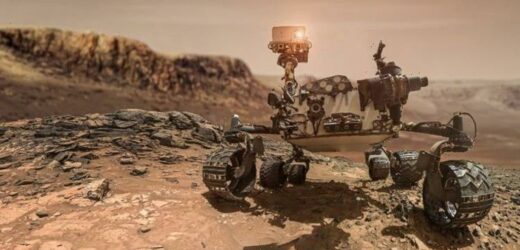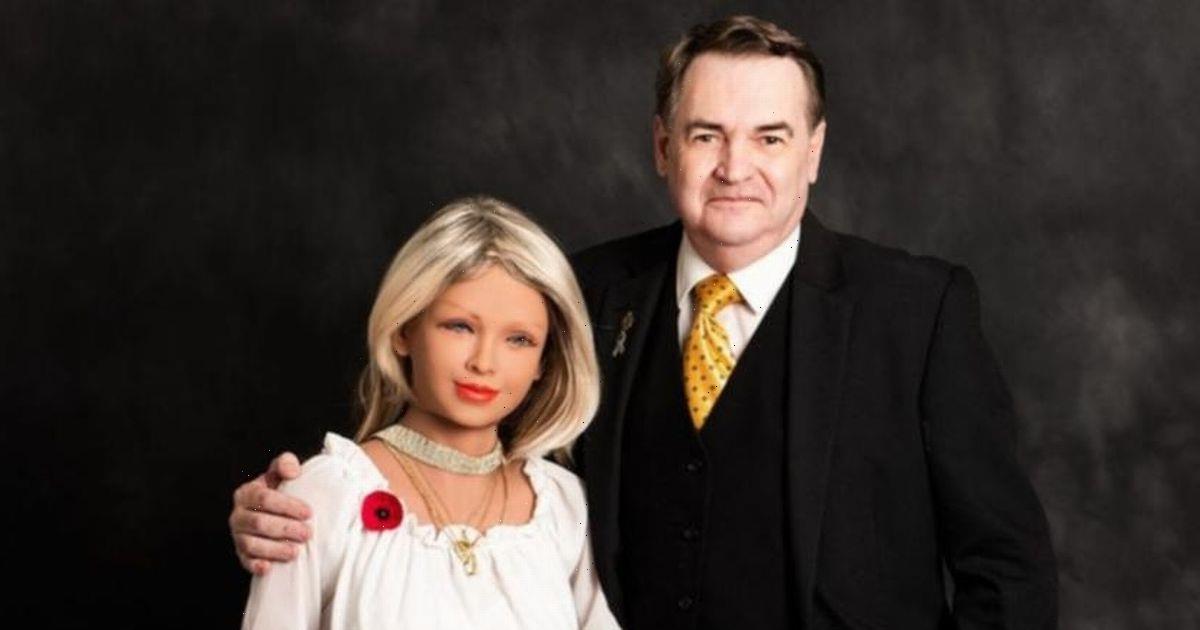NASA shares sound of Perseverance Mars rover driving
We use your sign-up to provide content in ways you’ve consented to and to improve our understanding of you. This may include adverts from us and 3rd parties based on our understanding. You can unsubscribe at any time. More info
Dr Christian Schröder, from the University of Stirling, will play a leading role in commanding the European-Russian ExoMars Rosalind Franklin rover as it launches in September 2022, as part of a team of five scientists chosen by the European Space Agency (ESA). He exclusively told Express.co.uk that he is excited by the prospect of discovering clues for extra-terrestrial life.
Dr Schröder said: “It is reasonable to ask whether there could have been life on Mars because after decades of exploration we know that Mars was much more Earth-like early in its history.
“More than 3.5 billion years ago it had plenty of liquid water on its surface and at that point, life was already established on Earth. Liquid water (as opposed to ice) is the most important prerequisite for life and hence Mars was habitable at that time.
“And by that, we mean that it offered the conditions for microbial life to survive.
“But we do not know whether it has ever been inhabited by any form of life.”
Once the rover lands at the selected site of Oxia Planum on Mars in June 2023, it will spend a minimum of 211 ‘sols’ (Martian days), the same as 230 Earth days, searching for organic carbon molecules that could reveal alien clues.
Dr Schröder told Express.co.uk: “If we were to find any evidence for life on Mars, we would then have to figure out whether it is independent from life on Earth.


“That means, we did not bring it there inadvertently on our Spacecraft and it does not share an origin with life on Earth. Microbial life could have been transported between planets by meteorites in the Early Solar System, for example.
“It would be very exciting to, first of all, find any evidence for life on Mars and, secondly, be able to establish an independent origin.
“We are biased in our search because we only have the example of life on Earth, which is cellular and all cells contain their genetic code in the form of DNA. So we are looking for something similar with the reasonable assumption that life would be based on carbon chemistry.”
The Rosalind Franklin rover will be the first to carry a drill long enough to explore molecules up to two metres below the surface, where they would be protected from the harsh radiation on the planet’s surface.
Dr Schröder was part of the team operating NASA’s twin Mars exploration rovers, Spirit and Opportunity, from 2003 to 2019.

The mission established the past presence of liquid water on the Martian surface – the most important prerequisite for life.
Dr Schröder said of the new mission: “The rover itself has been built by Airbus at its site in Stevenage in the UK, and it is named Rosalind Franklin after the British scientist who played a pioneering role in working out the structure of DNA.
“The development of the rover’s panoramic cameras has been led by the UK, and it made an important contribution to the rovers Raman Lase Spectrometer.
“British scientists and engineers contribute to most NASA and ESA missions.
“Participation in any space mission requires for an individual scientist to be selected from the worldwide science community.”
DON’T MISS
NASA signs up British priest to prepare for alien life reveal [REVEAL]
Solar storm warning as NASA predicts ‘Earth impact’ before Christmas [REPORT]
Scientists pinpoint exactly when the Sun will explode [INSIGHT]


The ExoMars rover mission is a collaboration between the European Space Agency (ESA) and Russia’s Space Agency Roscosmos.
The UK is a member state of the European Space Agency and the second-largest contributor to the ExoMars mission.
Dr Schröder said that Britain has already been making strong waves in the field of space exploration.
He told Express.co.uk: “Britain contributes to all aspects of space exploration, from building satellites and spacecraft to working on the International Space Station.
“Currently, the UK is working towards a rocket launch site on the British Isles.”
Source: Read Full Article


